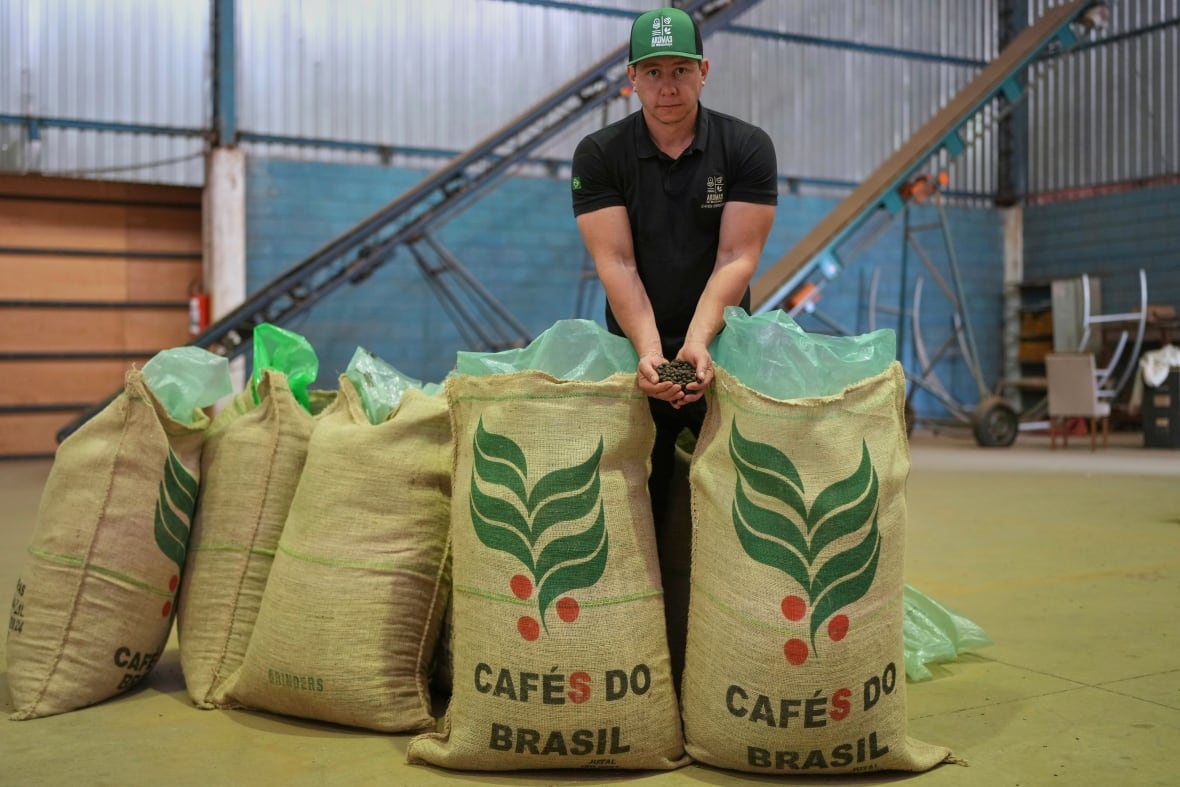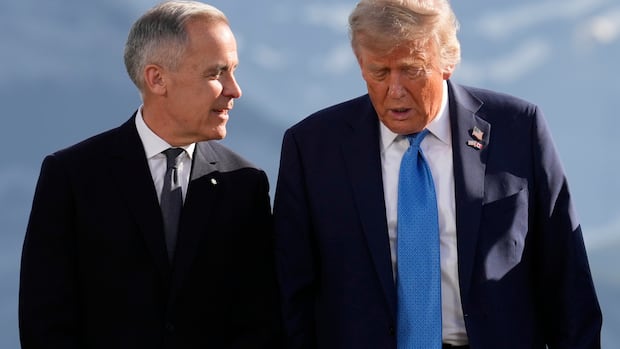The costs of Trump's tariffs are starting to add up for Americans. Here's how
More U.S. companies raising prices, reporting tariff-related hits to their profits or both

Little by little, the costs of U.S. President Donald Trump's tariffs are starting to show for American businesses and consumers.
News of the tariff impact is mounting, from the Detroit Three automakers announcing they'll face extra costs this year totalling into the billions, to the stainless steel cookware manufacturer in Tennessee hit with a $75,000 US tariff bill on one shipment, right down to the coffee shops considering boosting the price of a cup because of tariffs on Brazil.
Until recently, companies have somewhat shielded U.S. consumers from the full effects of the tariffs, either by rushing supplies into the country ahead of Trump's deadlines or absorbing the levies as a cost of doing business.
But with tariffs on imports from roughly 100 U.S. trading partners due to rise this week from their current baseline of 10 per cent, tariff-related costs are headed nowhere but up.
Alex Durante, senior economist of the Tax Foundation, a Washington-based policy and advocacy group, says the tariffs are hitting a broad range of U.S. businesses that rely on imports.
"I think the administration is going to have a really hard time trying to convince the American people that some of the price increases they're seeing are because of other factors not related to the tariffs," Durante said in an interview with CBC News.
"I just don't think most people are going to be fooled by that," he said.
Trump, cabinet deny tariffs costing Americans
While on a macro level the U.S. economy is generally chugging along just fine despite Trump's tactics, there's some fresh data suggesting the tariffs are acting as a drag:
- Weak jobs numbers.
- Rising core inflation;
- A sharp drop in orders of durable goods, such as appliances and automobiles.
Trump and his cabinet members quickly brush aside any evidence that the tariffs are costing Americans, with the president even firing the head of the federal statistics agency that produces the country's employment report.
"We have a lot of money coming in, much more money than the country has ever seen, by hundreds of billions of dollars," Trump said Sunday when a reporter asked about tariffs.
U.S. Trade Representative Jamieson Greer flat-out denied that Trump's tariffs policies are a factor in the jobs slump.
"I don't read tariff policy into that number," Greer told the CBS program Face the Nation on Sunday.

But if you're willing to look around, you can find plenty of examples of U.S. businesses feeling the pinch.
Reuters news agency is compiling examples of how major companies around the world are responding to Trump's tariffs, such as hiking prices and issuing profit warnings.
Retailers, big brands raising prices
The Reuters tracker currently shows 22 U.S. companies raising prices, including retail giants (Walmart, Best Buy), footwear brands (Nike, Crocs, Birkenstock) and big-name makers of household goods (Colgate-Palmolive, Procter & Gamble, Clorox).
It's hard to imagine many American consumers haven't bought something from those businesses this year.
Other big-name U.S. firms have in recent days reported tariff impacts:
- Tech giant Apple says it faced $800 million in tariff-related costs last quarter alone, and expects that to rise to $1.1 billion this quarter.
- Warren Buffett's Berkshire Hathaway blames tariffs in part for a 5.1 per cent quarterly decline in revenue in its consumer goods division, which includes brands like Fruit of the Loom.
- Tool manufacturer Stanley Black & Decker estimates its tariff costs will hit $800 million this year.
Those corporate figures don't touch on another trend emerging in the U.S. economy: the downturn in visits by international travellers, dramatically so from Canada.
Perhaps that's not exactly tariff-related, but Trump slamming other nations on trade by describing them as nasty, unfair and ripping off the U.S. is not exactly what you'd call a warm and welcoming tourism ad campaign either.
Higher prices could impact public opinion
While some polling suggests more Americans disapprove of tariffs than approve, the issue does not appear to be a crucial source of public-opinion damage to Trump and the Republicans — at least not yet.
That could change if the tariff costs on businesses accumulate so much that consumers can't help but see the impact.
"We know from the most recent presidential election that voters really disliked seeing higher prices," said Durante.
He sees trouble ahead whether businesses pass along all, some or none of the extra tariff costs to consumers.
"If they're absorbing the price increases, that's less money that they could use to invest in their own businesses and jobs and further production," Durante said.
"So, even if we don't see the tariffs fully impacting final consumer prices, these are still some pretty harmful effects."

